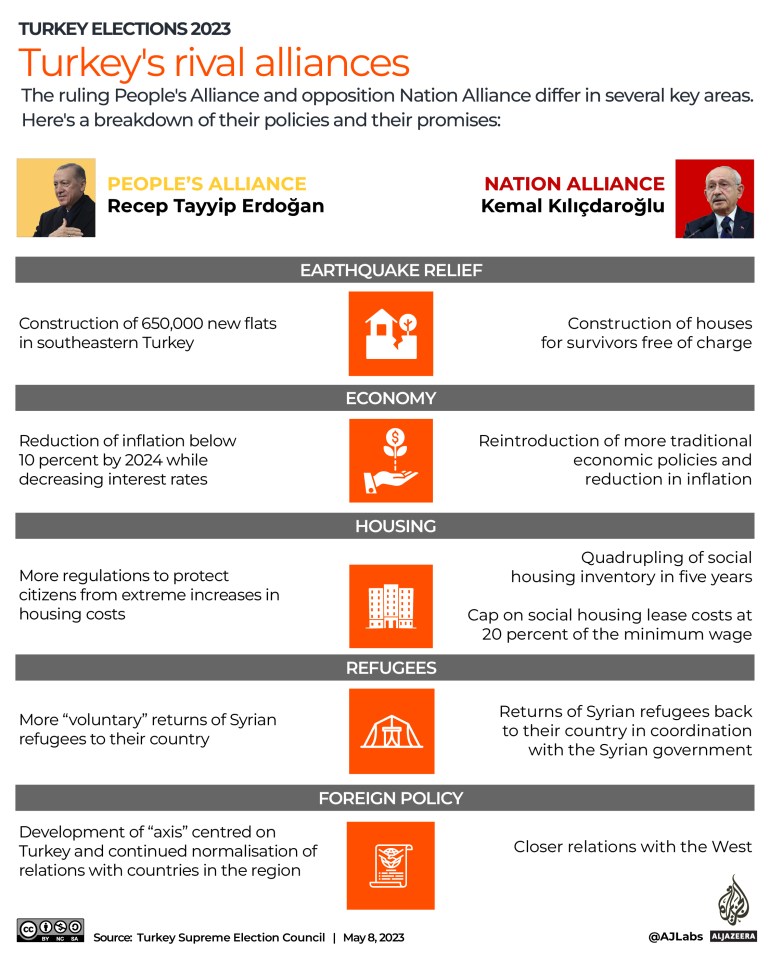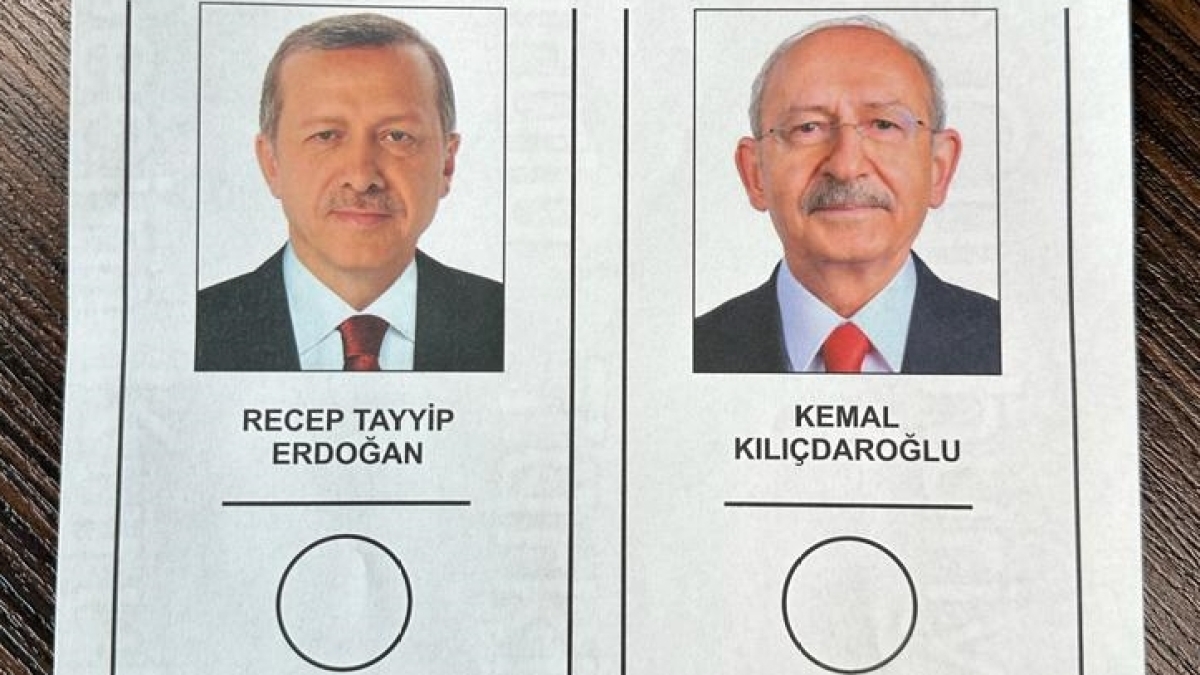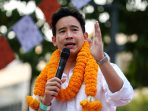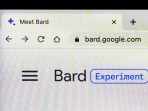Turkish President Recep Tayyip Erdogan will face opposition candidate Kemal Kilicdaroglu in the key presidential election run-off on Sunday.
Erdogan, who has ruled the country for more than 20 years, is favoured to win for five more years after he marginally missed victory in the first polls on May 14.
The incumbent president received 49.5 percent of the votes, while Kilicdaroglu scored 44.8 percent in the first run. A third candidate, Sinan Ogan, who is an unfamiliar figure to the Turkish public, took 5.2 percent with the support of an ultranationalist alliance.
However, in an unforeseen political disagreement, Ogan opted to support Erdogan in the run-off while the ATA Alliance that backed him threw its weight behind Kilicdaroglu after reaching a deal.
The rise in nationalist votes in the first vote and the nationalistic nature of the third candidate and alliance have had a significant effect on election campaigning during the two-week interlude before the run-off.
The election agenda has visibly moved from the crisis-hit Turkish economy and relief from the February earthquakes that killed tens of thousands of people to topics such as “terrorism” and the fate of refugees in the country.
Here is a roundup of the two candidate’s policies, promises and rhetoric on key issues:
Recep Tayyip Erdogan
- ‘Terror’: The president has consistently pursued sharp rhetoric against “terrorist” groups throughout the campaigning period, keeping security issues high on the agenda in an apparent attempt to attract nationalist votes.
He frequently claimed his opponent is supported by “terror” groups such as the Kurdistan Workers’ Party (PKK), which has waged war since the 1980s for autonomy, and the Gulen movement, Erdogan’s former ally turned arch-enemy accused of a 2016 coup attempt.
Throughout his campaign, Erdogan has said his government will crush these groups.
“Our fight against all evil networks, including the separatist terrorist organisation PKK and its extensions will continue with determination,” he said in a public address earlier in the week, adding the PKK “could not move” in Turkey any more because of his efforts.
- Refugees: Erdogan has promised to return some one million Syrian refugees to their homeland after implementing housing projects in Turkey-controlled northern Syria, without giving a specific timeline.
He also said improving dialogue between Syria and Turkey through Russian mediation efforts will help increase the “voluntary” return of refugees.
Erdogan has often accused the opposition of being discriminatory against the refugees in the country, which, according to official numbers, hosts 3.4 million of them.
Kilicdaroglu “is trying to save the day with hate speech”, the president said in a recent interview.
- Economy: Erdogan has pledged to continue with his unorthodox economic policies, including keeping interest rates low despite hyperinflation and a cost-of-living crisis.
He has said he aims to pull the inflation level down to 20 percent in 2023 and below 10 percent in 2024, but added his government would keep decreasing interest rates.
“I have a thesis that interest rates and inflation are directly proportional,” he repeated after the May 14 polls. “The more you lower interest rates, the lower the inflation rate. My theory here is that interest is the cause, inflation is the effect.”
- Earthquake relief: Erdogan has promised to provide quake survivors in southeastern Turkey with home loans with a 20-year maturity and a two-year grace period.
His government aims to build a total of 650,000 new flats in the region and promised to deliver 319,000 of these in one year.
The Turkish president also announced he will set up key defence industry production facilities in some of the temblor-hit provinces.
Kemal Kilicdaroglu
- ‘Terror’: The presidential contender has made “terrorism” one of his top topics during the two-week pause between votes.
He has made remarks on how Erdogan’s government and the Gulen organisation were former allies, and Turkey and the PKK held talks with the president’s approval in the past.
On television and social media, he pledged to fight all “terrorists”.
“Terrorism will be fought, not negotiated. No political and legal arrangement targeting Turkey’s national and unitary state structure will be allowed,” said a May 24 protocol signed between Kilicdaroglu and the Victory Party, which led the nationalist ATA Alliance.
- Refugees: Kilicdaroglu has increased anti-refugee rhetoric after the first polls in an apparent attempt to attract nationalist votes.
The candidate promised to send refugees in Turkey back to their homeland in two years before the first election through an agreement with the Syrian government. The Kilicdaroglu-Victory Party protocol decreased this to one year.
In a YouTube show aired earlier this week, he said the repatriation process will be carried out through certain rules, and the European Union should fund it because of a current refugee pact between the two sides.
“We will create the infrastructure for this process. We will ensure security of their [refugees’] lives and properties and then send them,” he said.
- Economy: Kilicdaroglu has pledged to bring back conventional economic policies, including rational interest rates, to fight crippling hyperinflation in the country, frequently condemning Erdogan’s policy of low interest rates.
The presidential candidate has said he will work to attract foreign investment for Turkey as he works to create a country manufacturing high-value products.
He claimed he could attract as much as $300bn in investment from abroad, saying investors only want democracy and confidence in Turkey to invest.
Kilicdaroglu has said he will ban home sales to foreign citizens until Turkey’s housing crisis, pushed by hyperinflation, earthquakes and other factors, is settled for Turks.
- Earthquake relief: The opposition leader has promised to provide free housing for earthquake survivors who lost their property in the disaster.
Kilicdaroglu has said he aims to transform earthquake-hit provinces into a manufacturing base, adding materials needed to build new housing will be manufactured in the region.
“Once the wounds are healed, this region will become one of the largest production regions in the Mediterranean, the Middle East and Africa,” he recently said.

Sumber: www.aljazeera.com
 Skip to content
Skip to content



